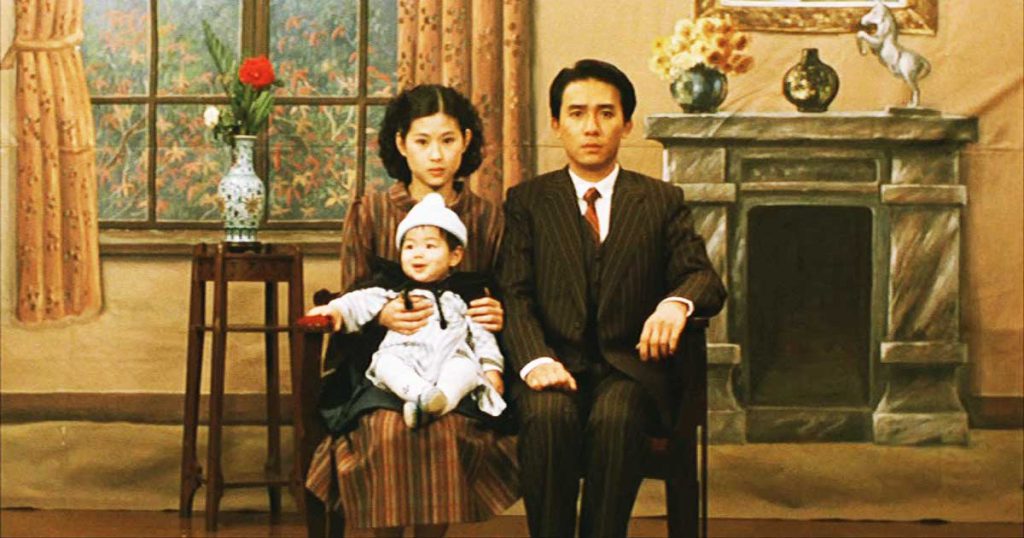The City of Sadness
Written by Lee Suk Pei
Gwangju Theater screened four new movies in July, and three of them were from Taiwan. I had a hard time deciding which movie I should review. It was between A One and a Two, by Edward Yang, and The City of Sadness, by Hou Hsiao Hsien. A One and a Two talks about life’s transitions and ups and downs while The City of Sadness talks about the lives of a family affected by the transition of power in Taiwan following the end of Japanese occupation. Ultimately, I decided on The City of Sadness for its greater meaning for Gwangju citizens and even Korea as a whole.
The story is set between the years 1945 and 1949, which marked the end of Japanese occupation in Taiwan and the beginning of the takeover by the Chinese government (Kuomintang) following the end of the Chinese Civil War. The movie starts with the birth of a child to Lin Wen-hsiung, the eldest of the Lin family’s four sons. Meanwhile, the second son, Wen-long, a medical practitioner, was sent to Luzon, Philippines, to become a military doctor. The third son, Wen-liang, became a translator for the Japanese in Shanghai but went crazy after returning home. The fourth son, Wen-qing, became deaf as a child and later worked as a photographer.
From here, the film portrays the upheaval of Taiwan’s power transition during this period. Following the end of World War II, the film shows how Taiwan was taken over by Chiang Kai-shek of China on behalf of the Allied Forces. While many in Taiwan had expectations of self-governance and a better life under the rule of the Chinese “motherland,” this thought was quickly doomed when Chen Yi, Taiwan’s chief administrator, concentrated all administrative, legislative, judicial, and military powers in his hands.
In the movie as in real life, on February 27, 1947, Chen Yi’s government accidentally kills a Taiwanese while conducting an investigative operation into smuggled cigarettes. The long-contained grievance of the locals towards the government finally erupts. The next day, people protest and demand the government hand over the killer to be prosecuted. The military, however, responds by shooting into the crowd. This further spreads the conflict to the whole of the island. In the movie, outraged locals went on to punish the Chinese people, those they deemed the ah-shan, by checking whether they could speak Taiwanese or Japanese.
Seeing the inability of the government to calm the conflict, intellectuals form the 2.28 Incident Settlement Committee to calm both sides. However, the Chinese military, which later lands on the island, declare the committee illegal and prosecute all committee members. In the film, Teacher Lin, a character close to Kuan-rong (a friend of fourth son Wen-qing), was one of those committee members. White Terror (suppression of political dissidents under martial law, which lasted 38 years) looms, and the movie ends with both Wen-qing and Kuan-rong being arrested.
In the movie, the director tries to portray the life of the Taiwanese people after the Chinese government took over the island. Similar to Wen-qing becoming deaf – when he said he was too young to know its sadness and so still continued to be as naughty as before – many Taiwanese welcomed the return of the Chinese without seeing it as the return of another form of colonialism. The sensitive issue of Taiwanese independence and the subtle conflict between locals and mainland Chinese continues until today.
The Author
Suk Pei is currently studying for her master’s degree at Chonnam National University. Having been in Gwangju for almost one year, she is starting to extend her tentacles to meet different people and participate in various activities here in Gwangju. Gwangju is definitely more than what meets the eye.




You gave a great summary of the recent history of Taiwan through the movie: The City of Sadness. Korea also shares many similar stories of sadness with Taiwan, probably, with bigger suffering from its own civil war, which caused the death of 2.5 million people. It is nearly one tenth of the population at that time.
Thank you for your reply, Dr. Shin! The movie truly does portray the sadness war caused for the local people. – admin
Wow, I never explored that there is this commenting function! Thanks for liking it! The deeper sadness comes from that some if the locals are even welcoming the group of ppl who are overpowering them.